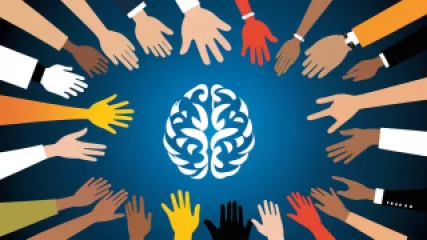Dispelling Myths About Mental Health Stigma
Mental health stigma is a pervasive issue that affects millions of people worldwide. It is the negative attitudes, beliefs, and stereotypes surrounding mental health conditions that often lead to discrimination and exclusion. Despite efforts to raise awareness and promote understanding, there are still many myths and misconceptions surrounding mental health stigma that need to be dispelled.
Myth: Mental Health Stigma is Rare
One common myth about mental health stigma is that it is a rare occurrence, affecting only a small portion of the population. However, the reality is that mental health stigma is widespread and can be found in various social settings, including schools, workplaces, and even within families and communities. These stigmas can significantly impact individuals' daily lives and their access to essential resources and support.
Research Summary: A study conducted by the World Health Organization (WHO) revealed that mental health stigma affects approximately 25% of the global population. The study also highlighted that stigma is prevalent across all age groups and cultures, emphasizing the urgent need for interventions and education to combat this issue.
Myth: Mental Health Stigma Reflects Personal Weakness
Another myth associated with mental health stigma is the belief that individuals with mental health conditions are weak or lacking in character. This misconception places blame on the affected individuals, suggesting that they have control over their mental health challenges and could overcome them if they were stronger.
This harmful belief disregards the complex nature of mental health conditions, which are influenced by various factors, including genetics, biology, and environmental influences. Mental health conditions are not a reflection of personal weakness but rather legitimate medical conditions that require support and treatment.
Myth: Seeking Help is a Sign of Failure
One of the most damaging myths surrounding mental health stigma is the notion that seeking help is a sign of failure or inadequacy. This misconception discourages individuals from reaching out for support, increasing their feelings of isolation and exacerbating their mental health challenges.
It is crucial to emphasize that seeking help is a courageous and proactive step towards managing one's mental health. Therapy, counseling, and other forms of professional support can provide individuals with the tools and strategies they need to navigate their mental health journey successfully.
Myth: Mental Health Stigma Only Affects Certain Demographics
There is a misconception that mental health stigma only affects specific demographics, such as individuals from low-income backgrounds or certain ethnic groups. However, mental health stigma does not discriminate. It can impact anyone, regardless of their socioeconomic status, race, gender, or age.
Research Summary: Multiple studies have shown that mental health stigma affects individuals from all walks of life. A study published in the Journal of Consulting and Clinical Psychology found that stigma was prevalent across different demographic groups, including both men and women, various ethnicities, and individuals from diverse socioeconomic backgrounds.
Myth: Mental Health Stigma Cannot be Overcome
While mental health stigma remains a significant challenge, it is essential to debunk the myth that it cannot be overcome. With concerted efforts from individuals, communities, and organizations, progress can be made in reducing and ultimately eliminating mental health stigma.
Research Summary: Numerous initiatives and campaigns have been successful in raising awareness and challenging mental health stigma. For example, the "Time to Change" campaign in the United Kingdom has led to a significant decrease in stigmatizing attitudes and an increase in public understanding of mental health conditions.
By continuing to educate ourselves, promote empathy and understanding, and advocate for policy changes, we can make a difference in ending mental health stigma. It is crucial to provide resources and support for individuals affected by mental health conditions and create inclusive environments where everyone feels comfortable seeking help and support.
Sources:
-
World Health Organization. (2001). The World Health Report 2001: Mental health: New understanding, new hope. Retrieved from https://www.who.int/whr/2001/en/
-
Corrigan, P. W., River, L. P., Lundin, R. K., Penn, D. L., Uphoff-Wasowski, K., Campion, J., ... & Kubiak, M. A. (2001). Three strategies for changing attributions about severe mental illness. Schizophrenia bulletin, 27(2), 187-195.
-
Vogel, D. L., Wade, N. G., & Haake, S. (2006). Measuring the self-stigma associated with seeking psychological help. Journal of Counseling Psychology, 53(3), 325-337.
-
Pescosolido, B. A., Martin, J. K., Long, J. S., Medina, T. R., Phelan, J. C., & Link, B. G. (2010). “A disease like any other”? A decade of change in public reactions to schizophrenia, depression, and alcohol dependence. American Journal of Psychiatry, 167(11), 1321-1330.






